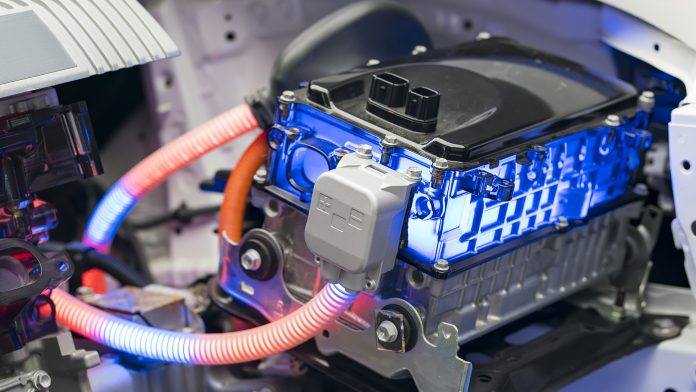£10m funding has been announced for 17 projects to develop next-generation batteries for electric vehicles, making them safer, cheaper, faster-charging and more recyclable.
It has been announced that £10m of Faraday Battery Challenge funding is being utilised to develop Britain’s next-generation batteries for the future of zero-emission travel. This funding will be split between 17 projects being delivered by businesses and research institutions all around the country.
The projects comprise a group led by LiNa Energy that is planning to create a novel sodium nickel chloride battery system, which will result in enhanced cell performance, as well as production optimised for scale-up, decarbonisation and recycling. As well as this, there is another project led by Anaphite Ltd, which will build batteries that charge faster by adding graphene into the battery cathode.
Smart battery investment
The funding has been announced just after the official opening of the Coventry based UK Battery Industrialisation Centre (UKBIC) on 15 July by Prime Minister Boris Johnson. UKBIC is a battery manufacturing development facility that is partially funded by the Faraday Battery Challenge and will act as a connection between battery technology and mass production.
The centre is open to any organisation with preexisting or new battery technology and has been created to boost the UK battery industry and the development of emerging battery technologies for future electrification.
UKBIC will assist the UK’s bold climate change targets, such as accomplishing net-zero carbon emissions by 2050 and halting the sale of petrol and diesel cars and vans by 2030.
A number of the newly funded projects will be based at UKBIC. For example, one project will be established to assess the possibility of manufacturing Ultra Power (UP) cells in Britain at volume manufacturing scale+. Conventional batteries sometimes face difficulties in situations where they must release a large amount of energy very quickly, such as in battery hybrids or power tools.
These novel UP cells have been designed to release energy rapidly and not overheat while fast charging, as well as having an extended lifespan. By working alongside UK companies to construct products specifically around the UP cells, the aim is to offer UK engineering companies a substantial competitive advantage.
Providing battery manufacturers with support
Tony Harper, Challenge Director for Faraday Battery Challenge at UK Research and Innovation, commented: “Since 2017, the Faraday Battery Challenge has been supporting the UK’s battery companies to produce batteries that are more cost-effective, more efficient, charge faster and can easily be recycled.
“This new round of funding enables us to support companies across the battery supply chain and build on the UK’s world-class research and innovation. One project, Power-UP, combines industry partners with input from the UKBIC and the Faraday Institution to deliver a product that has the potential of being a best-in-class cell with unique selling points.”
Fuelling battery evolution
In the last year, the sale of electric vehicles has been increasing dramatically, with more and more options showing up on the market. In response to this, the battery industry is establishing ways in which other forms of transport, such as boats, planes and off-highway vehicles, can be electrified.
Fuelling this battery evolution is the Faraday institution, which is funded by Faraday Battery Challenge. It is Britain’s independent institute for electrochemical energy storage research, skills development, market analysis, and early-stage commercialisation.
By merging the expertise of a whole manner of organisations, universities and industries, four of the newly funded next-generation battery projects will utilise knowledge, capabilities and know-how developed by the Faraday Institution research community.
Together, the 17 projects will aid the facilitation of widespread use of electric vehicles in Britain, as well as helping the UK government to reach its commitment to halt the sale of petrol and diesel cars from 2030 and to achieve net-zero emissions by 2050.
These projects will complement the UKRI’s long history of investing in cutting-edge research and innovation to identify, challenge and alleviate the effects of climate change. In the year the UK hosts the UN COP26 summit in November, UKRI will use its position as a steward of the research and innovation system to bring our communities together. The objective of this is to develop sustainable and durable solutions and promote novel behaviours and ways of living that will allow the UK to reach net-zero by 2050.







